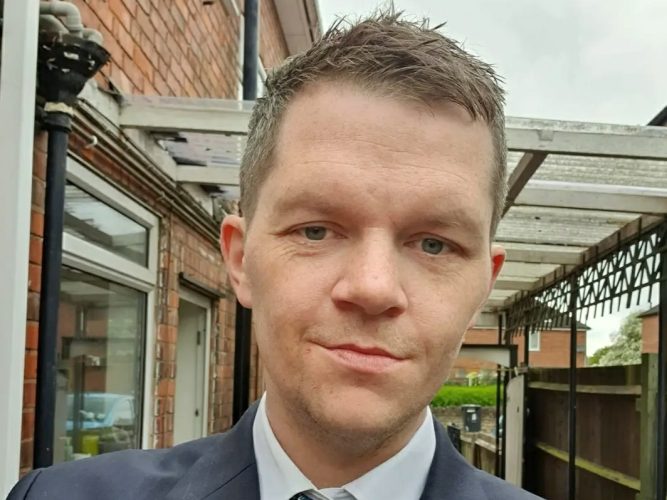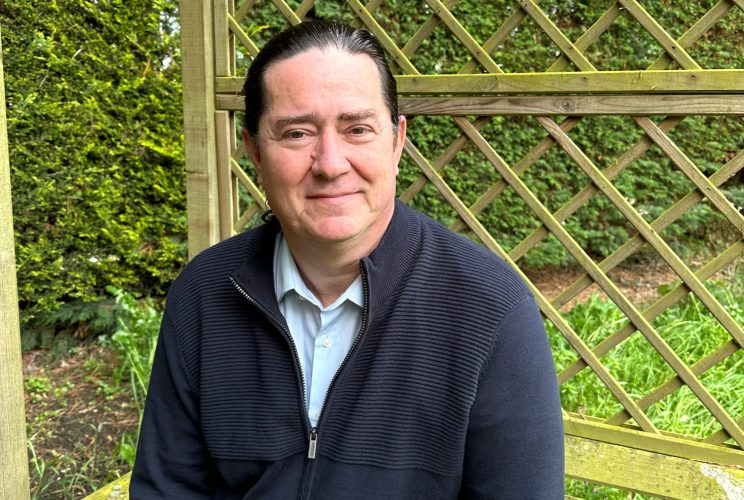“Everything you do, your social structure, the way you live your life, is built around needing to drink,” says Lewis Bell, now six years sober. “You change your sleeping pattern so that you can sneak out of the house. You know the addiction needs to be hidden, because if no-one knows you’re an alcoholic, it’s like you’re not one. It becomes totally all-encompassing.”
Lewis is reflecting on an often unreported period in the battle with addiction. His alcohol dependence was rampant, entirely dictating his behaviour and decisions, but those around him were oblivious. Lewis was hiding a secret, and he had been for a very long time. “Looking back, the whole hidden nature of addiction was ingrained early. My dad was an alcoholic and when my mum died, people would come to the house to assess me being taken into care. I knew I had to hide his alcoholism.”
As an adult, Lewis was by any means ever ready to protect his own secret. Its exposure promised catastrophic consequences; confirmation of a dire diagnosis, “I couldn’t say the word, because my dad had died of alcoholism. I couldn’t be that person. I couldn’t be an alcoholic. I had a problem, but it wasn’t alcoholism. It couldn’t be.”
For Lewis, succumbing to addiction was his greatest fear, and it seemed to him that as long as nobody else was aware, it did not exist. He created a network around himself to enable his drinking, whilst keeping it concealed. He even befriended local off-licences, and then bought alcohol from them on a rotational basis to obscure his usage. Maintaining the secret became a major part of the lonely, omnipresent cycle.
This secrecy surrounding addiction, and the role of the local off licence, is nothing new. Dr David Beckingham, whose work focuses on the regulation of drinking and drunkenness, is Associate Lecturer in Cultural and Historical Geography at the University of Nottingham. “In Victorian times, new licensing laws, which allowed grocers to sell alcohol, enabled forms of drinking away from scrutiny.” he says, detailing how previously alcohol consumption had been mainly confined to public houses. “That created new chains of consumption that brought drink into the home. But people, particularly women, would want to drink in secret because the social cost of being found out was so high, and this access enabled that.”
So Lewis is far from alone in this predicament, in either historical or contemporary contexts. “People always hide and keep it secret,” says Henry Stephen, who has been sober for fourteen years. Now a hypnotherapist, Henry reflects on when he was the one maintaining the secret. “I knew that it wasn’t right but I knew nothing else. I didn’t know that I was using to cover up trauma and guilt. I simply knew that as my life,” and this seemingly inescapable reality meant that his addiction was a necessary coping mechanism which he needed to preserve. “I’d accepted it would always be that way and to entertain that it could be anything different would mean I had to not drink, not use drugs and face the most terrible pain which I’d spent 15 years running from. That was not happening, and if I have to keep it at a secret, then I keep it a secret.”

This perspective is echoed by Robin Lefever, Treatment Director at the revered Promis Clinic, “There doesn’t seem to be a workable alternative. This is a way of functioning that really seems to work. So if the reward is so great, and people disrupt or disapprove in some way. Well, why let them in on it? Why not just keep it from them?” the sense of well-being that someone with an addiction feels when under the influence, means that stopping does not seem like a viable option. Therefore, hiding from anyone likely to challenge them becomes crucial. “We can think of addiction as being a hostage taker, it literally kidnaps the person and forces them to behave in a certain way and do certain things,” says Lefever, illustrating why both the addiction and secret hold such power.

But in the end, the secret can be maintained no longer, “It was like I was a little boy,” says Henry. “I felt completely vulnerable, completely open, completely unskilled to process being found out.” Ultimately, despite enormous efforts to maintain the secret, the consequential behaviours associated with addiction inevitably lead to its eventual exposure. “You feel like your life’s over, like it’s a death sentence,” says Lewis, “I felt more isolated than ever.”
Ultimately, letting go of the secret was perhaps the first step in a long and challenging journey. Once controlled by their addiction, Henry and Lewis now speak honestly and openly, sober and strong, freed from the duress of maintaining the secret.
The cover image for this article was created using generative AI, Playground








